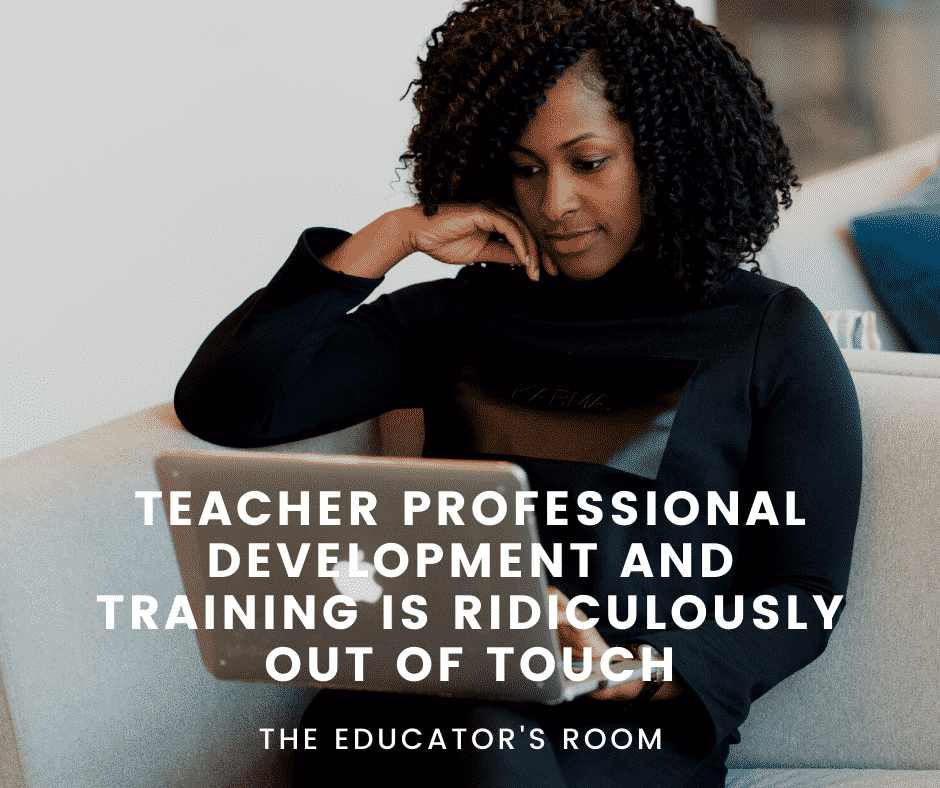Guest Writer: Jill Jackson
About a year ago, I was sitting in a hotel lobby with a group of very smart, talented and super motivated leaders from a district I know well. They know what’s up and they are busy at work every single day. I admire them and what they do.
We were casually talking about why their scores were lagging and why they weren’t seeing the results in their district like they expected to. I asked them to walk me through what they’d tried and what was on the horizon. They detailed a whole slew of things that they had trained their teachers in and professional development they would bring in the near future. But as they were telling me all about their plans, it started to sink in that this was just way too much. Did this plan of support for the teachers make sense on paper? Yep. Total sense.
But when they started to think about how much this would be for teachers to learn, implement and then layer on the next thing, the head honcho (who is about the smartest person I know in education) looks at me and says, “What have we done?”
It was at that moment as she was talking through all they were working on that she realized that they had completely overwhelmed their teachers and they stood virtually no chance of doing everything they were tasked with doing.
[bctt tweet=”It suddenly dawned on her that they were handicapping their teachers but presenting it in the form of help.” username=””]
Here’s the real crisis in professional development right now…and it is truly a crisis:
- Teachers are not getting enough professional development on the things that bring students to benchmark
- Teachers are getting too much professional development on the things that are fancy and too far removed from actual teaching
- Teachers are getting confused about exactly what constitutes real teaching because of it
Let’s break this down…
If the ONLY way a student gets to grade-level benchmark on a previously unknown skill is when a teacher teaches the students through the steps we outlined in article 1:
- The teacher teaches a skill directly
- The teacher models what the skill is going to look like when it’s done right
- The student practices while the teacher looks on and gives correction/feedback
- Once the student is pretty solid on the skill with the teacher’s support, the student starts to use the skill with less supervision and in different scenarios
- Periodically, the teacher brings the skill back for maintenance practice
Then, it makes sense that the teacher’s professional development should be around how to lesson plan, deliver the lesson and assess how the lesson went. Rinse and repeat for every new piece of content or subject area. It really should be that simple.
But when we look at a particular professional development calendar of an actual school district that shall remain nameless (and whose scores are in the dump), we see that this is their Back to School/Fall Professional Development Calendar:
- 1-day Unit Planning – All Subjects: Reviewing all plans and then planning for the Fall
- 2 days of AP Training
- 2 days New Teacher Training – 10 items on the agenda to master in the two days
- 1-day Collaborative Unit Planning
- 1-day Data Mining: 6 items on the agenda to do/master on that day
- 1.5 hours Best Practices on Evidence-Based Learning: 7 items to do/master on the agenda
- So we have 7.5 days of training in the Fall for new teachers and 5.5 days of training in the Fall for the others. Roughly 40 agenda items/things to do from those meetings. And topics that, if I were to guess, are not in line with what teachers really need.
On paper, this looks like a robust professional development plan. But in reality, teachers are asking questions like “How do I manage my toughest behavior problems?” or “Exactly what parts are required of our new curriculum and what should we leave behind?” or “What do I do when my students don’t pass the assessment…do I go back and reteach and get off of the curriculum map or do I keep going?” And implementing forty agenda items on top of everything else? There is no chance even a superstar teacher can do that well.
None of the training options above answer the most pressing, practical questions that teachers have. And that’s a real problem and here’s why. When teachers are confused, overwhelmed and go too long without their pressing questions answered, they default back to what they know how to do already. This means that they could be highly trained in a new technique, but because the professional development wasn’t helpful, they end up not changing their teaching at all. This equals, wasted time, wasted money coupled with a lot of frustration.
In another case, a school district purchased fifty professional development days from SolutionTree to focus simply on how to improve their teaming practices. Huh?
We spend upwards of $18 billion a year on educator professional development. In some cases that is an average of $18.000/teacher. But where is the impact of that money? We can’t just say, “We need more training,” and “We need more money!” without getting clear on what needs to be done with it…and it better look way different than it does now if we expect any impact.
Professional development must be just that: development. It is not a one-and-done thing where you sit in a room and gather the information and that’s that. They need time to think through what they’re learning. They need to be taught how professional development connects to what they’re already doing. They need time to practice the new technique and to know when and where to use it in their lessons. They need review built-in.
But teacher professional development doesn’t look like this at all. And districts get “credit” for their professional development programs without looking at how those programs are impacting students.
After all, whether professional development is successful or not should be proven by student results, not just teacher results.
When is the last time someone investigated whether teachers attending the 1.5 hour session on evidence-based learning even taught better because of it? There is little to no accountability to the outcome of the training.
Two of the most disconcerting things I’ve seen in the professional development world of education is
- The over-complication of things that are really quite simple
- The tendency to want to work on the system of a school and avoid getting down to the teaching
Let me explain…
When I look at what professional developers and trainers like me are doing, I notice that they often make things way more complicated than they need to be. Now, I’m hoping that’s not because they are building work for themselves (hmmm…), but whatever the motivation, it’s not working for the teachers.
For example, I recently attended a session where a well-known trainer talked to a group of about three hundred teachers about the nine steps for choosing the correct vocabulary words. Yes, the teachers were nodding their heads in understanding and yes, it made sense. BUT, nine steps for a part of a lesson that takes less than five minutes? Nine steps when the real answer to teaching vocabulary words is this: teach the words that best unlock the content so that when students read they understand what the author is saying. Period.
I also notice that when a district or school is struggling, they will try to fix it by getting professional development on the system, not the instruction. For example, one of our partners hired a company to the tune of $1.4 million over three years to help them collaborate better. But, when I asked what they are focusing on collaborating on in that three-year contract, they said they are focusing only on the collaboration part…not on the instruction part. That’ll come later, they said.
Well, guess what? Scores don’t go up if you don’t fix the instruction. Were they wildly busy and committed to the collaboration work? Absolutely! Did it fix their score problems? Not one bit. And so they dumped collaboration and moved onto the next fix-it that their Superintendent learned about at a recent conference.
Professional development should be about teacher skills, not just program implementation. Teachers regularly report that they want content-specific professional development, not the big picture stuff where we sing kumbaya and feel better about ourselves as people.
It is not a mystery to any educator that the more skilled the teachers are, the more skilled the students are. There is a direct correlation. So, why is there more professional development than ever and yet we are struggling so much?
Hmmm…something’s up. It’s time to start asking questions.




